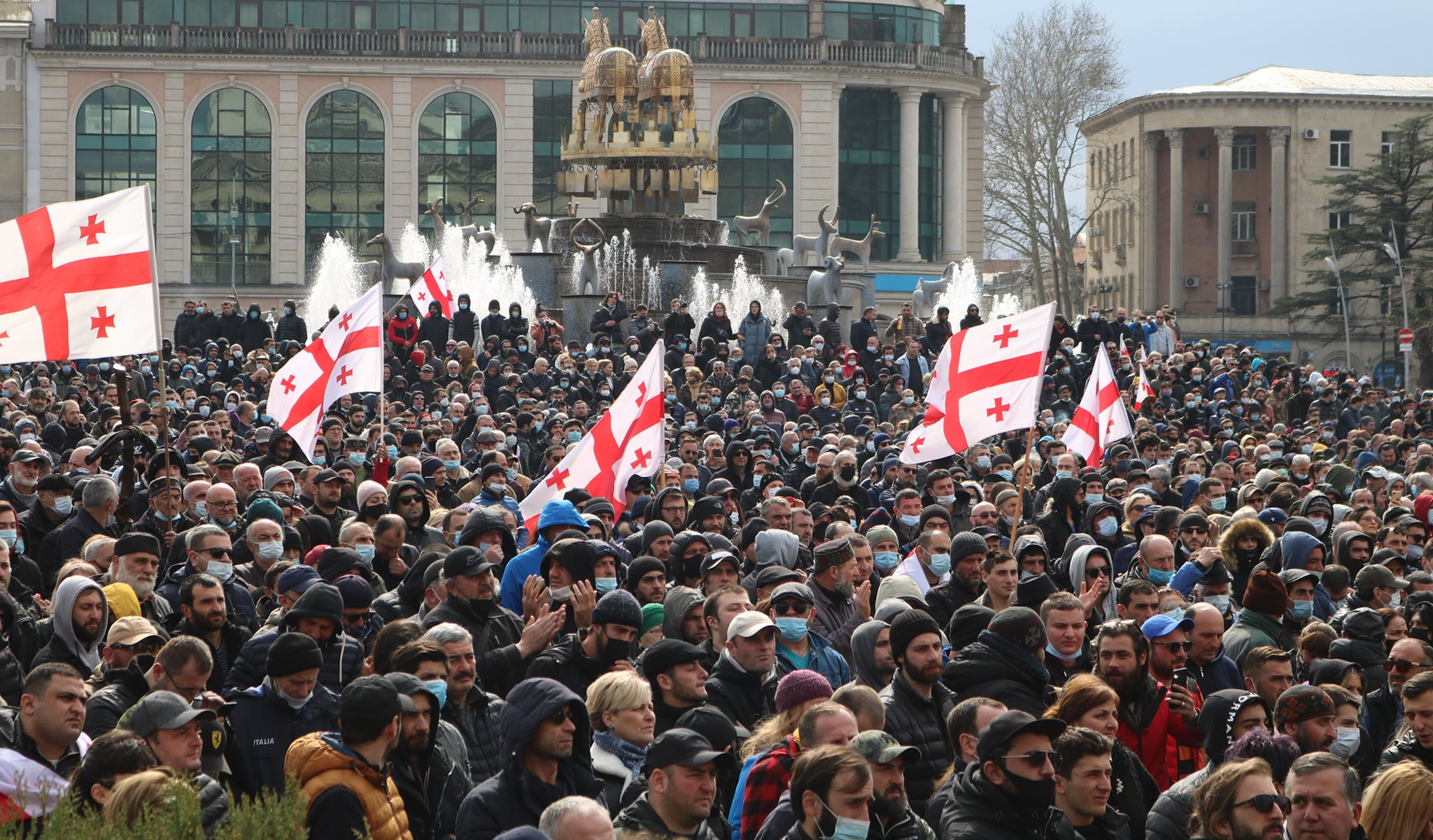NEWS

We, the Social Justice Center (formerly EMC), Green Alternative, and Georgian Young Lawyer’s Association (GYLA), are deeply concerned over the fact that in response to our criticism, regarding fundamental violations committed during the implementation of the Namakhvani HPP project, gross human rights abuses, the concluded agreement essentially compromising state interests, non-transparency and institutional failures, the government refuses to engage in the dialogue and continues the infringement of human right to assemble, to protect the environment, to use public space, as well as the right to freedom of expression and free movement in the Rioni Valley. Human rights infringements, in the recent period, are accompanied by disinformation campaigns and discrediting attacks on activists, civil society organizations, and experts who oppose the Namakhvani projectimplementation in this form.
Instead of taking constructive steps in response to the legitimate, completely fair, and objective protests and answering critical questions towards the government, we are facing a smear campaign by both the project implementing company Enka and the state-owned Georgian Energy Development Fund (GEDF). In this process, the government not only fails to act in defense of the public interest but its public communication is openly being complemented by the company’s PR, which blurs the line between the state and a private entity. The role of the state is represented only through the police force and repression, which neglects democratic principles, infringesthe rule of law, violates human rights, hinders the peaceful and democratic resolution of these processes, and increases security risks for Rioni Valley defenders as well as the organizations protecting their rights.
We have identified a new strategy that is being used by the state, and other local or individual international actors involved in the process, to create an unfair connection between the peaceful and legitimate opposition to the Namakhvani HPP project and the fight against energy security and national interests of Georgia, with the aim to declare this healthy process as managed, xenophobic, peripheral, marginal, and to frame the project related criticism in a geopolitical context. Such rhetoric of the state and of the other actors serves to delegitimize the protest, which in its very essence fights for the protection and preservation of state and collective interests and throughout this period exposes joint actions against the national and public interest by the government and the company.
The public is well aware of the main concerns related to the Namakhvani HPP construction project, which serve as the basis for criticism of local residents and civil society organizations. The preparation of the Namakhvane HPP project, including the selection process of the project implementing company, was completely non-transparent. Also, until recently, the public was not aware of the content of the agreement between the government and the company "Enka", which makes it clear that the state is giving up national and public interests in favor of a private company. Also, key decisions made by the government, such as the transfer of land rights to the company, were made in advance - before the environmental impact assessment decision (permit) and the construction permit were obtained. In addition, more than a year has passed since two lawsuits were filed in court seeking the annulment of the said environmental impact assessment decision, however, the court hearings have not been held to date.
We believe that inefficiency in the case of Namakhvani is also evident from the perspective of the justice system, which is unable to ensure that construction is suspended by the court until the legal dispute is fully resolved. In addition, the government's rhetoric about suspending the construction of the dam serves to mislead the public, as there is no permit for the construction of the dam, which already precludes the start of construction of the HPP. In effect, the government made sure the construction process would be resumed using the police force, while it was one of the most important demnads of the Rioni Valley defenders that the construction works were halted. At the same time, the government's attempts to create illusory discussion formats ("For Better Namakhvani") reduce criticism of Namakhvani HPP only to the issue of dam safety and completely remove from the agenda otherfundamentally critical issues around the project.
Given the current situation, we would like to emphasize, once again, the importance of the strong and unwavering support of the general public, community groups, independent institutions, experts, and scholarly circles, as well as the representatives of partner countries for democracy, the rule of law and human rights in Georgia. We also consider it important that the Government of Georgia acknowledges the legitimacy of the questions regarding the Namakhvani project, rejects the use of violent methods to ensure the initiation of the project, and immediately returns to the agenda it promised to resolve the process democratically and objectively. At the same time, we consider it particularly important to strengthen the oversight of international actors for a fair and effective resolution of the Namakhvani issue, based on the recognition of human rights, public participation, and democratic principles.
SHARE: